publication-type: Research
-
Gender-Responsive Electric Cooking in Nepal
Transition to clean cooking is necessary for protecting the health and lives of the 2.7 billion people who suffer from the health and environmental impacts of existing cooking practices. As cooking is typically a task that women engage in, understanding the barriers to and opportunities of a transition to electric cooking from a woman’s perspective…
-
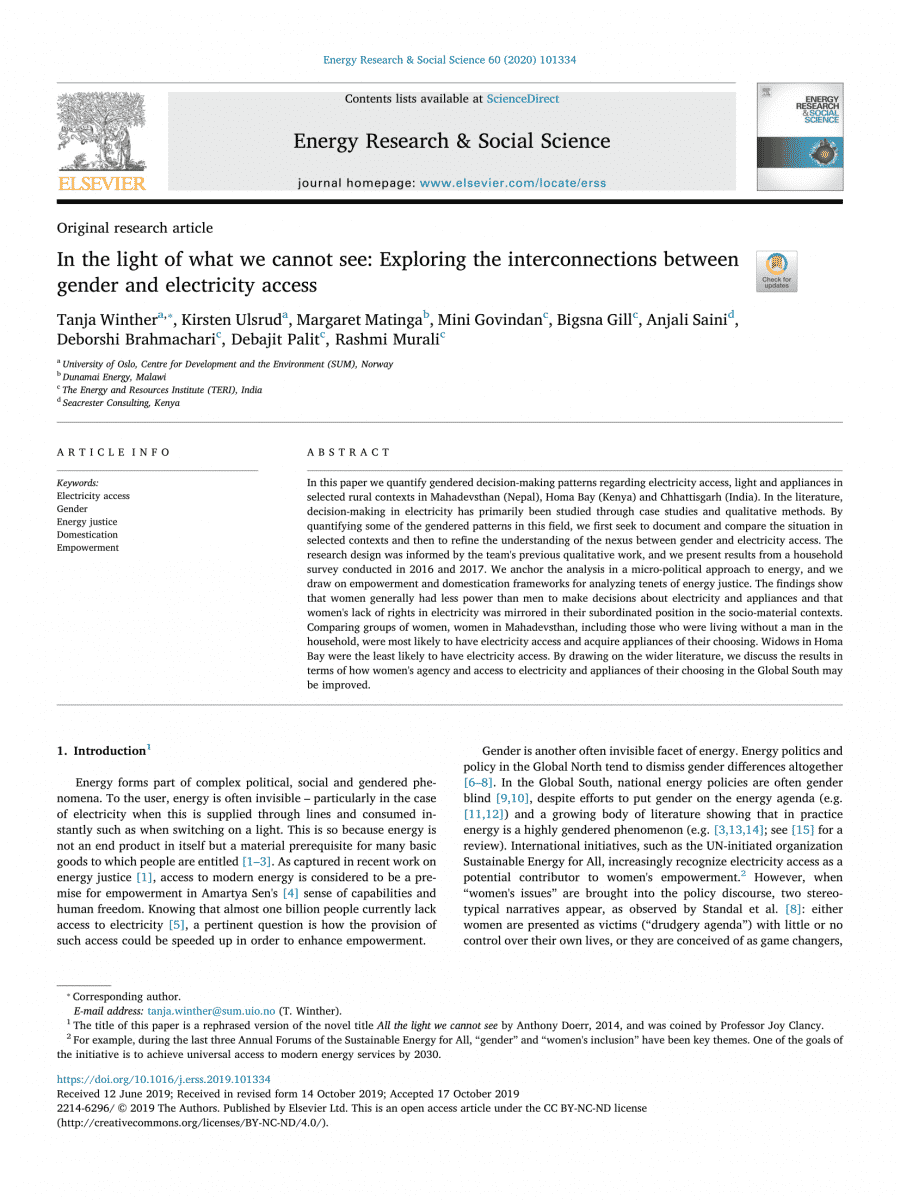
In the light of what we cannot see: Exploring the interconnections between gender and electricity access
In this paper we quantify gendered decision-making patterns regarding electricity access, light and appliances in selected rural contexts in Mahadevsthan (Nepal), Homa Bay (Kenya) and Chhattisgarh (India). In the literature, decision-making in electricity has primarily been studied through case studies and qualitative methods. By quantifying some of the gendered patterns in this field, we first…
-

“With Solar Sister, Forward We Go”: A Qualitative Assessment Exploring How Solar Sister Brings Light, Hope, and Opportunity to Women in Africa
Putting income and energy in women’s hands can have powerful economic and social impacts on women’s businesses, their families and their communities. Evidence shows that the income of self-employed, rural women who have access to energy is over twice that of their counterparts without access to energy. For rural women, access to energy is correlated…
-
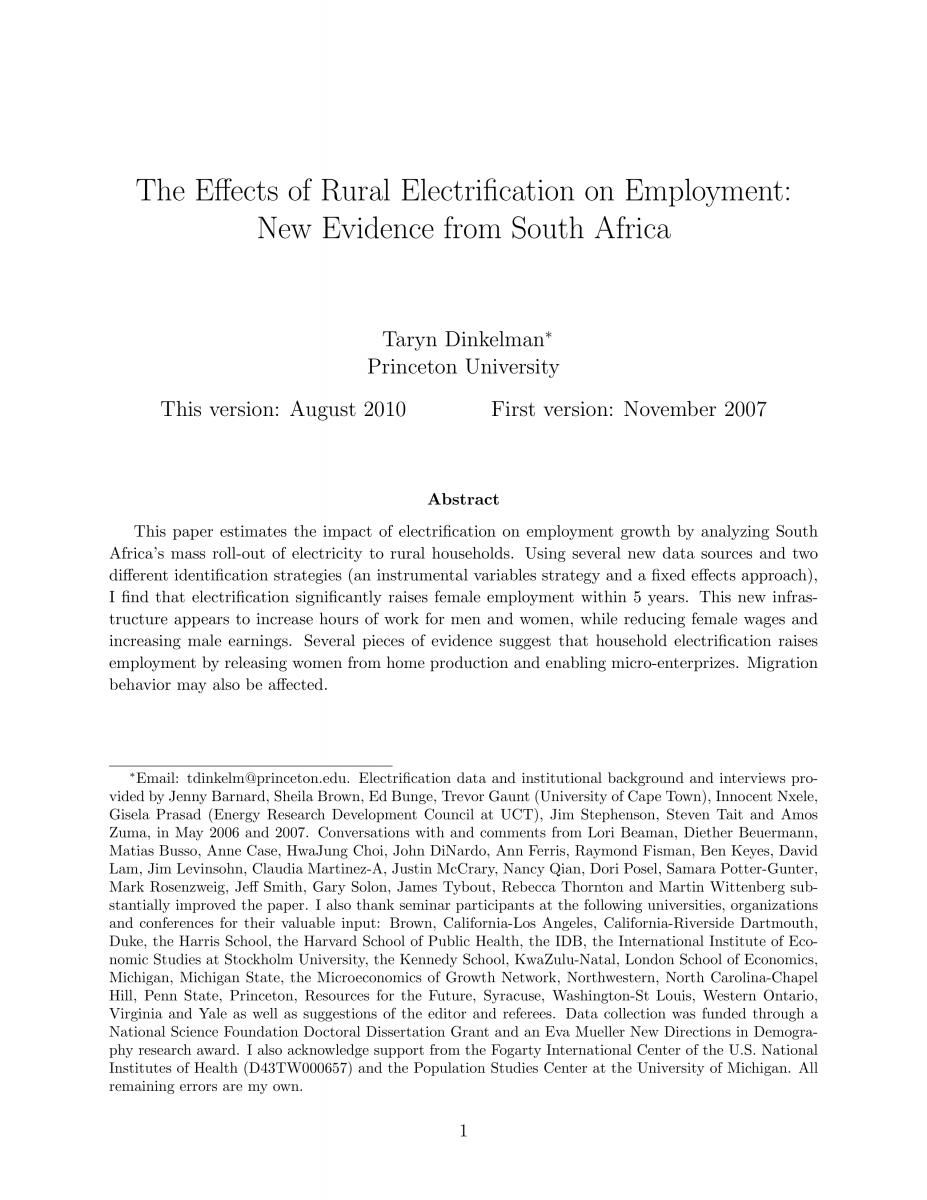
The effects of rural electrification on employment: New evidence from South Africa
This paper estimates the impact of electri cation on employment growth by analyzing South Africa’s mass roll-out of electricity to rural households. Using several new data sources and two di erent identi cation strategies (an instrumental variables strategy and a fi xed e ffects approach), I f nd that electri cation signi cantly raises female employment within 5 years. This new infrastructure appears…
-
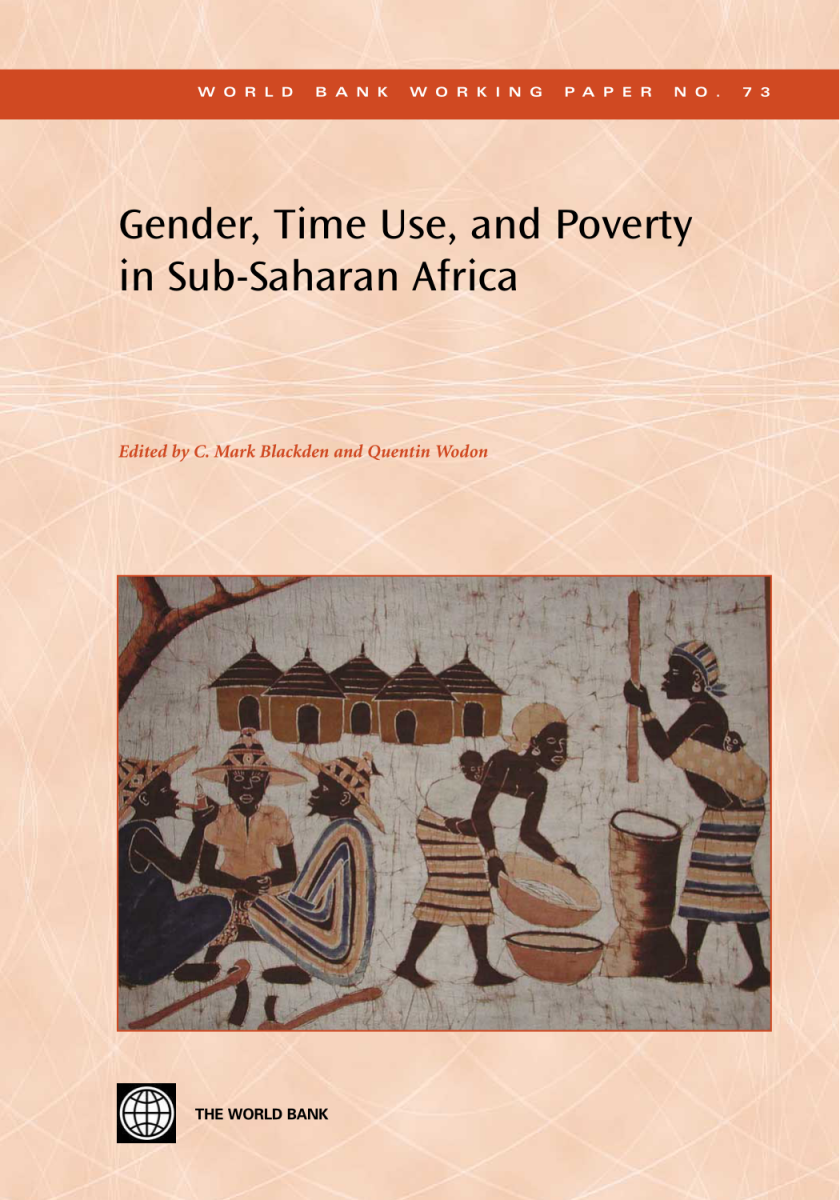
Gender, Time Use, and Poverty in Sub-Saharan Africa
The papers in this volume examine the links between gender, time use, and poverty in Sub-Saharan Africa. They contribute to a broader definition of poverty to include “time poverty,” and to a broader definition of work to include household work. The papers present a conceptual framework linking both market and household work, review some of…
-
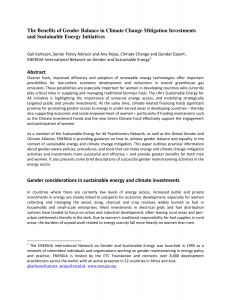
The Benefits of Gender Balance in Climate Change Mitigation Investments and Sustainable Energy Initiatives
Cleaner fuels, improved efficiency and adoption of renewable energy technologies offer important possibilities for low-carbon economic development and reductions in overall greenhouse gas emissions. These possibilities are especially important for women in developing countries who currently play critical roles in supplying and managing traditional biomass fuels. The UN’s Sustainable Energy for All initiative is highlighting…
-
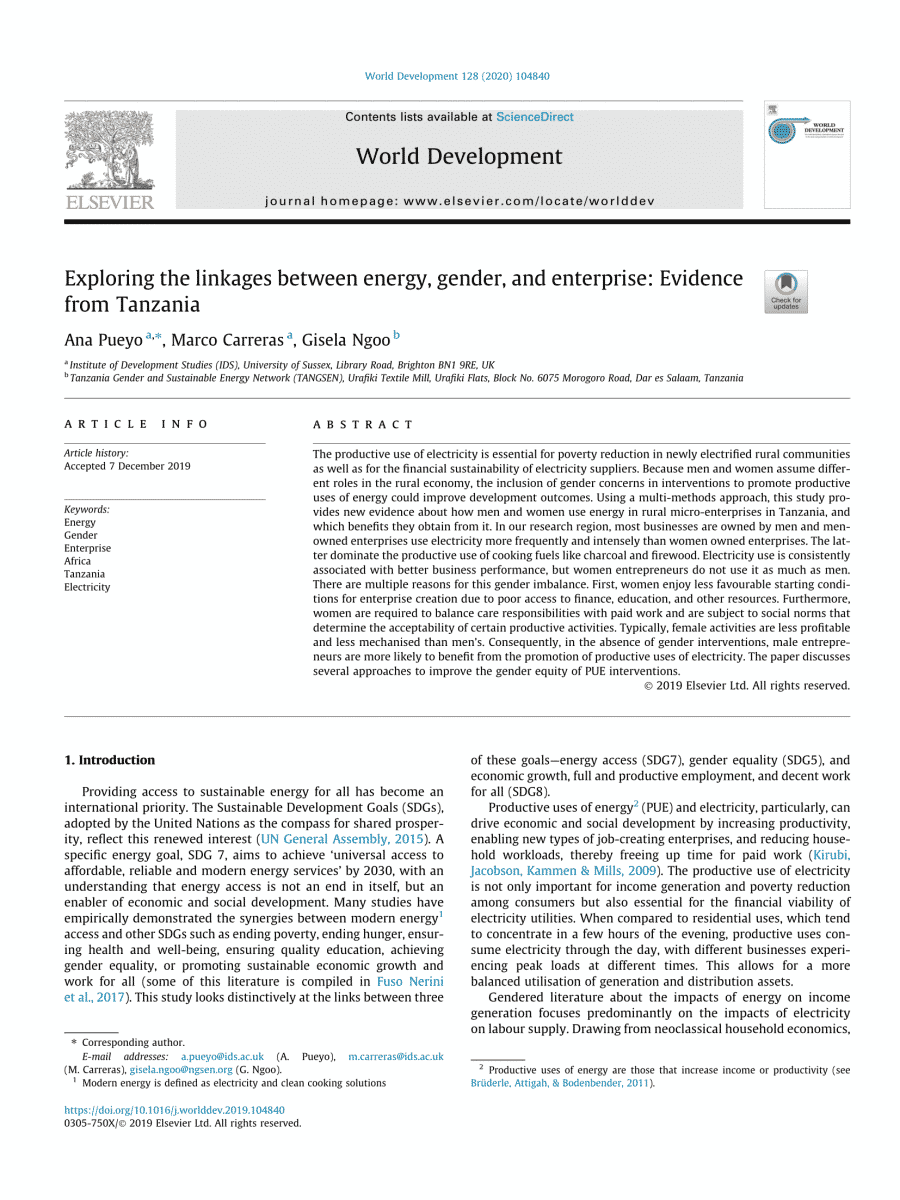
Exploring the linkages between energy, gender, and enterprise: Evidence from Tanzania
Highlights • The paper provides evidence about gender differences in the productive use of energy. • The research focuses on fishing communities in Lake Victoria, Tanzania. • Men and women use different types and quantities of fuel in their enterprises. • Electricity is consistently associated with better business performance. • A multi-methods approach combining qualitative and quantitative research is used…
-
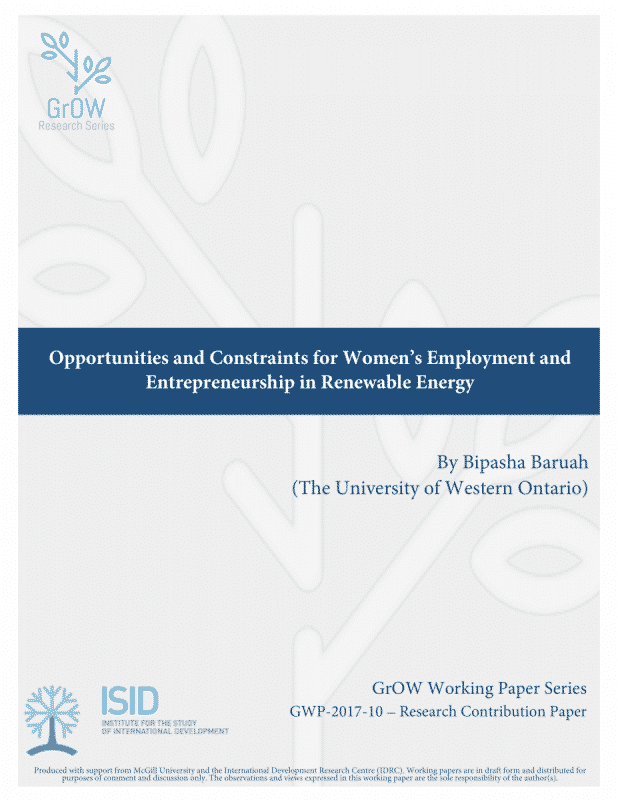
Opportunities and Constraints for Women’s Employment and Entrepreneurship in Renewable Energy
-

Communications & Gender Checklist: Things to Consider
-
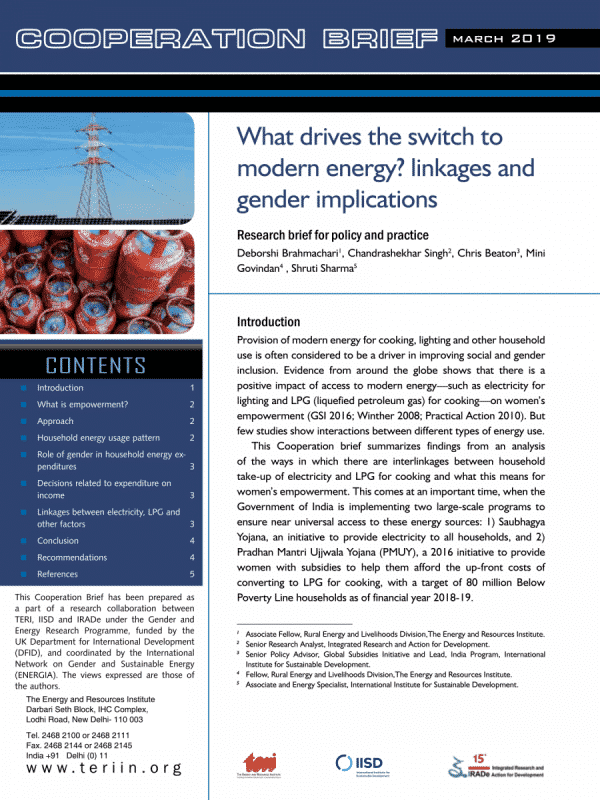
What drives the switch to modern energy? Linkages and gender implications
-
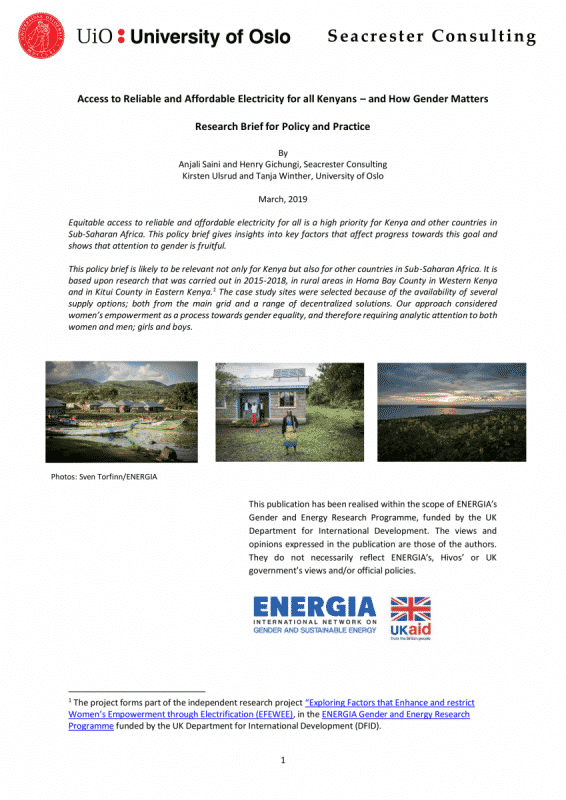
Access to Reliable and Affordable Electricity for all Kenyans – and How Gender Matters
-
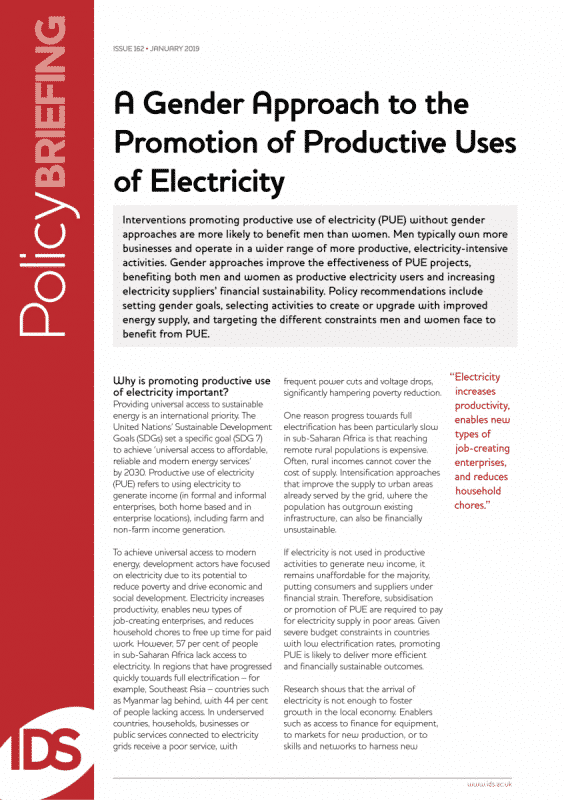
A gender approach to the promotion of productive uses of electricity

